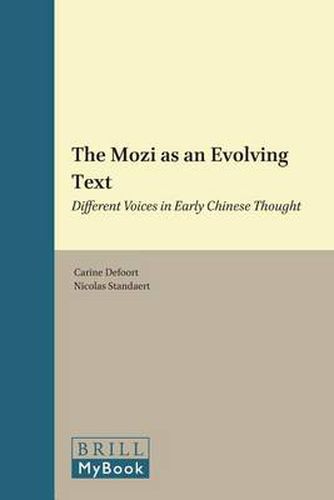Readings Newsletter
Become a Readings Member to make your shopping experience even easier.
Sign in or sign up for free!
You’re not far away from qualifying for FREE standard shipping within Australia
You’ve qualified for FREE standard shipping within Australia
The cart is loading…






Mozi (ca. 479-381), known as the first outspoken critic of Confucius, is an important but neglected figure in early Chinese philosophy. The book Mozi, named after master Mo, was compiled in the course of the fifth - third centuries BCE. The seven studies included in the The Mozi as an Evolving Text take a fresh look at the Core Chapters, Dialogues, and Opening Chapters of the book Mozi. Rather than presenting a unified vision of Mohist thought, the contributions search for different voices in the text and for evolutions or tensions between its chapters. By analysing the Mozi as an evolving text, these studies not only contribute to the rejuvenation of Mozi studies, but also to the methodology of studying ancient Chinese texts.
$9.00 standard shipping within Australia
FREE standard shipping within Australia for orders over $100.00
Express & International shipping calculated at checkout
Mozi (ca. 479-381), known as the first outspoken critic of Confucius, is an important but neglected figure in early Chinese philosophy. The book Mozi, named after master Mo, was compiled in the course of the fifth - third centuries BCE. The seven studies included in the The Mozi as an Evolving Text take a fresh look at the Core Chapters, Dialogues, and Opening Chapters of the book Mozi. Rather than presenting a unified vision of Mohist thought, the contributions search for different voices in the text and for evolutions or tensions between its chapters. By analysing the Mozi as an evolving text, these studies not only contribute to the rejuvenation of Mozi studies, but also to the methodology of studying ancient Chinese texts.